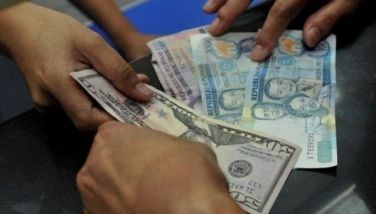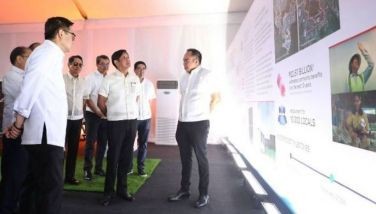‘Upskilling to expand Philippines role in semicon industry’
GENEVA – Upgrading the skills of Filipino workers from technicians to engineers and professors would allow the country to position itself better in the global semiconductor and electronics industry amid a booming technological advancement, a diplomat said.
Ambassador Manuel Teehankee, the Permanent Representative of the Philippines to the World Trade Organization (WTO), said the country is in a strong position to expand its participation in the global electronics value chain given its pool of young and educated individuals.
Teehankee explained that the growing demand for technology has created a shortage in skilled workers in the global semiconductor industry that the Philippines can fill in.
“The Philippines can take advantage of its knowledgeable workers and use partnerships with other countries like the United States to further train the workforce,” he told The STAR on the sidelines of the ongoing Public Forum hosted by the WTO here.
The government, together with the private sector is eyeing to train 128,000 workers that include engineers, technicians and PhD graduates to support the growth of the country’s semiconductor and electronics industry by 2028.
The envoy said the Philippines can tap the International Technology Security and Innovation (ITSI) fund of the US in improving its semiconductor industry workforce.
In 2022, the US legislated the CHIPS Act that sought to improve and diversify its semiconductor supply chain by investing in other countries.
The law also created the five-year $500-million ITSI fund that can be used to provide grants and opportunities to prospective beneficiaries.
Last year, the US and the Philippines forged a partnership for the utilization of the ITSI fund to help the latter improve its semiconductor industry, including its workforce.
“We want to go into the upskilling [of our workforce]. One of the projects of the fund is access and availability of skilled talents. That is one of the biggest challenges that the country has to invest in,” Teehankee said.
The upskilling of Filipino workers would entail both at the education and level and hands-on training to be able to cope with the needed skills in the semiconductor value chain, Teehankee said.
This, he added, could mean sending Filipino workers to the United States and vice versa for capacity building purposes.
“We should look at this demand-driven shortage in a positive light. It is showing us the way where we can redeploy and focus our new talents,” he said.
“It is not because we are actually behind. It is demand-driven by the market. In the old days, we needed more writers, economists and lawyers. In the modern age, we need more engineers, technicians programmers or hardware engineers,” he added.
Teehankee emphasized that global value chains must remain “integrated” but at the same time must enable developing economies like the Philippines to “move up” the ladder.
- Latest
- Trending




























